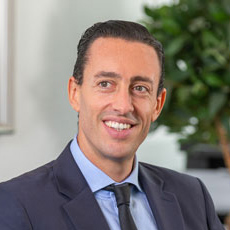Interviewers will use a series of competency-based assessments to determine your potential for this demanding, challenging and exciting role as a private market investor

Although in many interview situations past performance is usually the best indicator of future behaviour, in a private equity interview you will be tested to see if you have the potential to be successful in this role, a role which is likely to call on some additional skills and behaviours to those you have exhibited in the past.
There are usually three stages to the process.
- A first interview to determine if you have the work ethic, ambition and drive to be a successful investor
- A modelling test to see if your analysis skills are up to scratch
- A commercial case study to test your investor mindset

The first interview
Can you focus on what's important and draw the parallels between what you have done in the past and what they are looking for you to do in the future. For example, if you have some experience of a particular sector and you can see where there are opportunities to invest in that sector then it's important, and useful, in the first interview to be able to draw this parallel.
You might be able to say that one of your recent projects has given you insight into some of the key developments in that sector and you can see how an investor might be able to take advantage of that.
Show some commercial judgement in how you speak.
Useful prep you can do includes reflecting on the following:
- Have a look at the sectors that the private equity firm invests in and think about the drivers of these sectors
- Have your own opinion on which sectors/industries do you find interesting and why?
- Think about which companies you would invest in?
- Have a view on which markets you think mainstream investors are pricing incorrectly thereby producing an opportunity for private equity
- And make sure you know what makes a market appealing or not appealing to private equity

The modelling test
Make the effort to learn how to do these models. The hiring team is generally not looking to catch you out on the model, they just want to see if you have the basic skills. There are plenty of practice tests available on the web and including in the resources section on our website.
And be prepared to build a basic model from scratch. Would you know where to start?
Ensure you understand how IRR is impacted by the key levers of purchase price, leverage, revenue growth and the exit multiple.
Practise modelling tests

The case study
The most important part of the process is the case study. It is important as it is the closest you will get to the day-to-day job and highlights your ability to identify the key investment decision drivers in an investment case.
You will be given some information, typically an information memorandum and will have a period of time in which you to prepare your investment case and conclusions. This could be two or three hours or sometimes two days over a weekend.
The questions are often the same. What are the strengths and weaknesses of this as an investment opportunity? What further information would you like to have? Would you invest and how much would you pay?
It is important to focus on the areas that are critical to the investment decision.
One of the main reasons that people don't get invited back after the case study round is that they do not prioritise their thoughts. For example, when it comes to the strengths and weaknesses of the business, they write down absolutely everything they can think when they should be focusing on what matters most. Clarity of thought is crucial. So, focus on those things that move the needle on the investment decision.
The next reason why people don't get through is that they fail to realise the difference between a good business and a good investment. The answer is in the price. A great business might carry a very high price, thereby reducing your investment returns. Whilst an ok business might be more efficient on the price giving you more opportunity to enhance your return.
And the final reason is that people fail to voice an opinion. You must say if you would or wouldn’t invest and why.
Your answers need to be structured and specific. Try to see things from a buyer’s/investor’s perspective and have your own justifiable opinion on whether or not to invest.
Be ready to be challenged on your thinking, stand your ground when needed and be prepared to flex with more information.
In your analysis pay attention to:
- The market environment in which the company operates
- The cash flow dynamics of the business
- How would you estimate a value for this business and justify it? Think P/E multiple
- The management team and their importance to the success of the business
- The value creation strategy (organic growth vs. external, digitalisation...)
- The exit route (IPO, trade sale...)
- Critical issues for further investigation during the due diligence process
Be prepared
It is important for all three stages of this process to be prepared. Private equity interview processes are competitive and you will need to commit to them if you are going to succeed.
We can ensure you know what is expected at each stage. However, you will need to perform on the day. Make sure you give yourself the very best chance of succeeding by investing the time and effort to prepare.
We have many resources on our website that you can access. Good luck!

Benjamin Menai
Head of Switzerland
Head of Switzerland
More resources